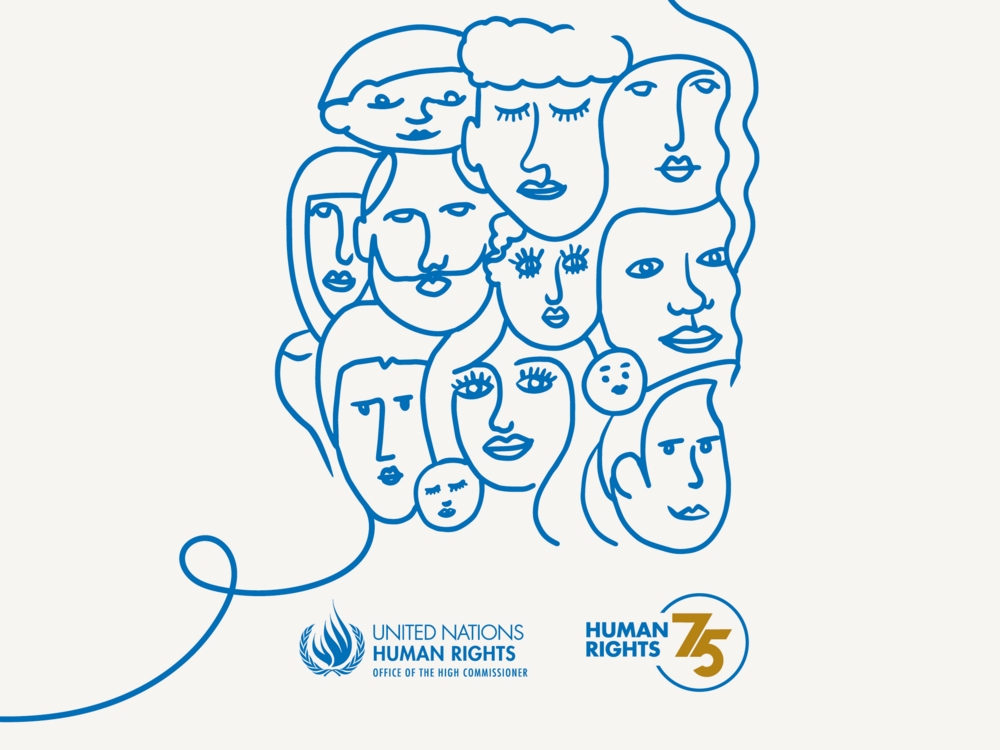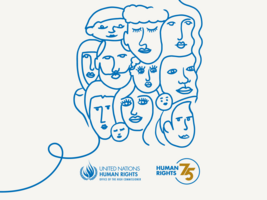At the roundtable upon the implementation of the Charter of Fundamental Rights of the European Union and the celebration of Human Rights Day at the Faculty of Public Administration in Ljubljana, on 12 December 2023, the Human Rights Ombudsman Peter Svetina in his introductory speech presented his finding that as a society we are becoming increasingly intolerant and insensitive to others, which coincides with a fall in living standards for a significant share of Slovenian citizens. “This situation raises concerns and that is why at the Ombudsman, we not only consider complaints of individuals who believe their human rights or fundamental freedoms have been violated but also increasingly raise awareness about the fact that human rights and fundamental freedoms are not self-evident but are universal, inalienable, and belong to each and every individual,” he said.
Svetina emphasised that after the pandemic, urgently needed systemic changes are coming to the forefront which have not been tackled by those responsible in the state for years. The Ombudsman believes that dealing with crisis situations, such as the energy crisis, rising prices of goods, the pandemic, and recent catastrophic floods, must not be an excuse for procrastinating when it comes to the necessary reforms.
He informed all those present of the findings of the institution of the Ombudsman in the field of human rights and highlighted that in 2022 the Ombudsman considered almost 6,000 matters, of which over half were complaints, and 222 violations were determined. The most frequently violated principle is the principle of good governance, while the biggest violator of rights is the Ministry of Labour, Family, Social Affairs and Equal Opportunities (MDDSZ), followed by administrative units, the Ministry of Health, municipalities, and the Inspectorate of the Environment.
Ombudsman Svetina finds that the pandemic has deeply cut into social inequality and additionally threatens vulnerable groups. Hence, it is important to treat elderly people and children as the subjects of rights, while it is especially important to always act in the best interest of the latter, as stipulated by the Convention on the Rights of the Child. In the field of social matters, the Ombudsman especially drew attention to the issue of personal assistance and decisions of the MDDSZ to intervene with previously acquired rights deemed as illegal. He again pointed to the lack of doctor specialists and long waiting periods and stated that in the field of psychotherapeutic services there has not even been a draft of the act, even though the Ombudsman has been repeating this recommendation in the field of mental health for seven years. The Ombudsman also expects that in the field of justice there will finally be the required amendment to the legislation that will provide greater accessibility of pro bono legal aid, and that stresses that there is no law that comprehensively regulates the field of treatment of underage perpetrators of criminal offences.
The Ombudsman also warned about more than 100 unrealised past recommendations made by the Ombudsman and expressed his expectation that the recommendations and the decisions of the Constitutional Court be implemented more quickly. He emphasised the importance of independent institutions for the operation of the system of checks and balances, about which the European Commission also warns in its report on the state of the rule of law in the European Union and its member states for 2022 and 2023. He recalled the beginnings of the institution of the Ombudsman 30 years ago and highlighted the importance of the Universal Declaration of Human Rights adopted 75 years ago and which is the foundation of the contemporary understanding of human rights and fundamental freedoms.
“Even though we cannot be fully satisfied with the state of the respect of human rights in Slovenia, it is important to realise that we live in a country and region where, from the global perspective, the standard of living, including the respect of human rights, rule of law, and democracy, is relatively high. We must not forget this as we cannot forget that every violation of human rights is inadmissible and must be eliminated as soon as possible,” concluded the Ombudsman.


